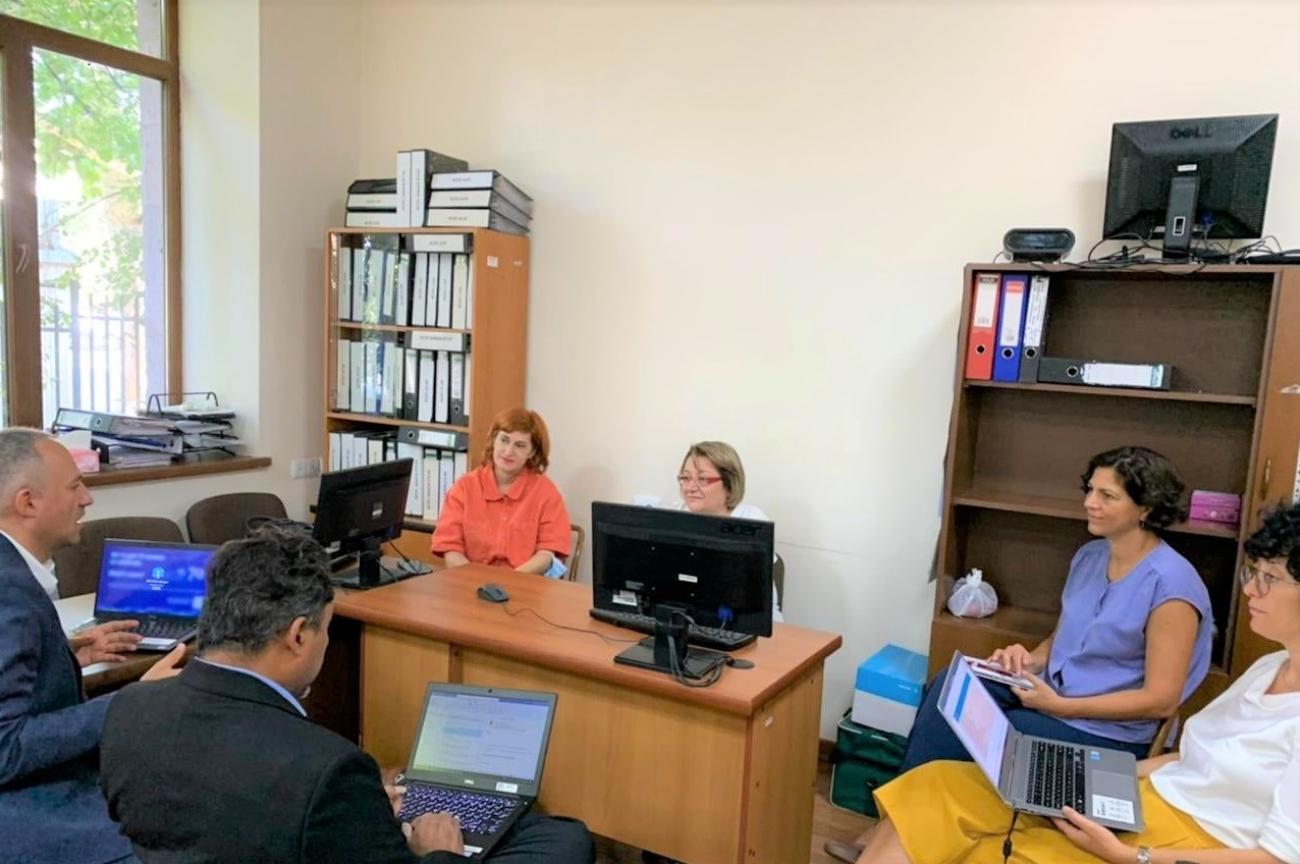Lessons learnt from the COVID-19 pandemic have made the need to reinforce health information systems a vital priority. This is also true for the Armenian Government and the Ministry of Health who have put digital health on the top of their agenda to help enhance data-driven decision-making, minimize the impact of emergencies on human populations, and to further strengthen the health system making it more efficient and responsive to the needs of ordinary citizens.
To support the Ministry of Health in achieving the health digitalization priorities and as a first step WHO experts and MOH have jointly assessed the digitalization of the health information system (HIS), routine, and COVID-19-related vaccination recording and reporting. The experts worked closely with the key HIS stakeholders including the Ministry of Health, the Health Information Analytic Center of the National Institute of Health, the National Centre for Disease Control, and ArMed. WHO mission also visited different institutions active in the sector of health care including the American University of Armenia, Yerevan State Medical University, Yerevan State University, Russian-Armenian University as well as Surb Grigor Lusavorich hospital, and the Association on Digital Health. They also had meetings with international partners – USAID and the World Bank.
Armenia demonstrates several strengths in its digital infrastructure, available data sources, and management of medical electronic cards. COVID-19 national response and investments contributed to upscaling the national ArMed digital health system with improved surveillance, real-time dashboards, users’ decisions on hospital and Intensive care admissions, quality data, as well as supply management of vaccines and other vital commodities.
"The implementation of electronic health care is one of the key directions of the Ministry of Health. The assessment report will help in the implementation of reforms in the field," mentioned Deputy Minister of Health Artak Jumayan at the meeting with experts and key stakeholders.
Capitalizing on the current strengths, WHO experts identified further strategic actions for more robust and sustainable HIS towards full digital health integration, HIS electronic certification for health care facilities, boosting HIS public health and artificial intelligence training as well as the introduction of telemedicine and use of secondary health data for research and decision making.
“Digital health is one of the key flagship initiatives of the WHO European Programme of Work 2022 – 2025. With this assessment, we have understood the depth and the substantial potential of the Armenian eHealth system and the pivotal role it could further play in a wide range of health services, ranging from early warning and surveillance of diseases, promoting public health, and last but not least, leveling up the quality of health care services and the practices of the workforce, both in primary health care and in hospitals”, said Jihane Tawilah, WHO Representative to Armenia.
The activity was part of a larger support package, implemented by WHO with the financial support of the ‘European Union–WHO/Europe Action for the deployment of COVID-19 vaccines and vaccination project’, critical assistance to ensure safe and effective vaccination against COVID-19 in six Eastern Partnership countries including Armenia.




